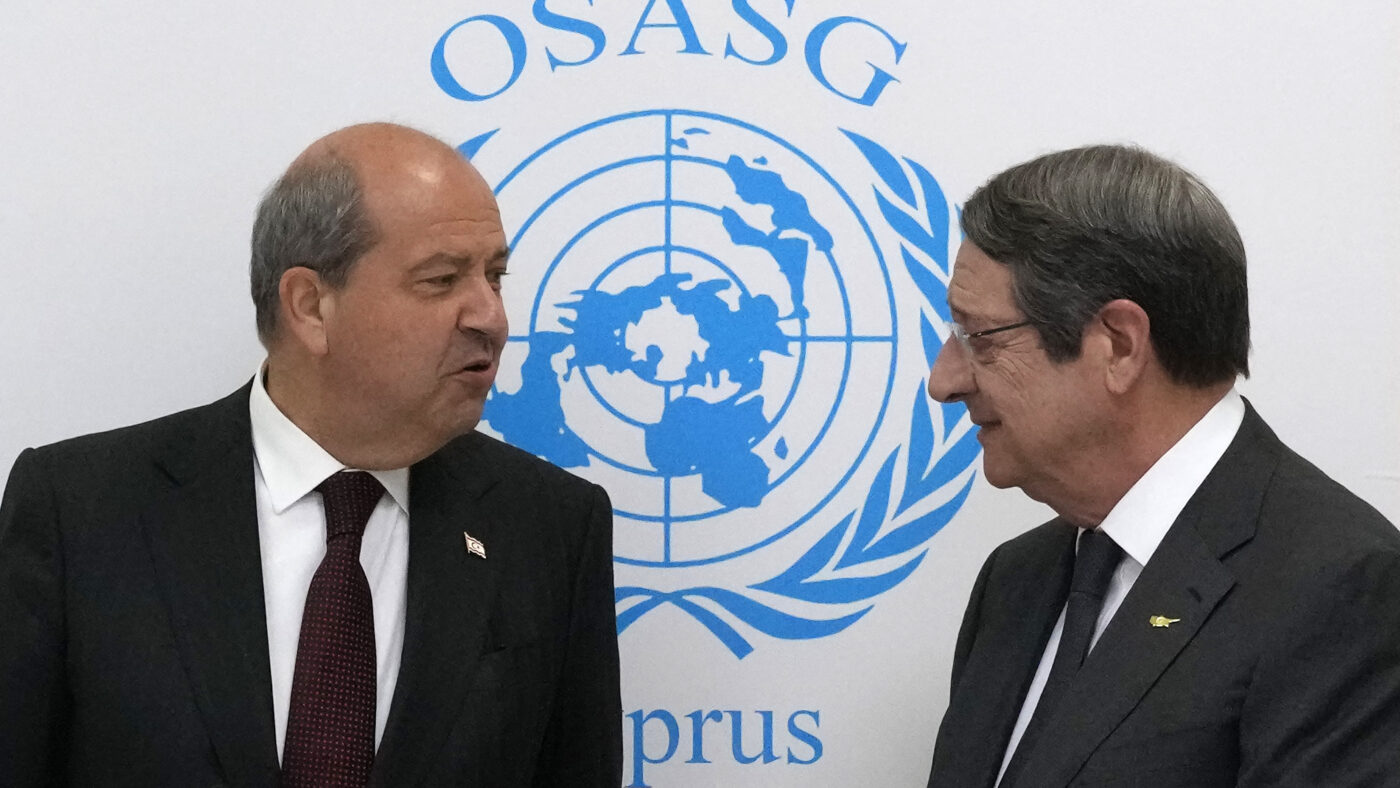Last month, we were delighted to welcome a British parliamentary delegation to the Turkish Republic of Northern Cyprus (TRNC). The visit was a great success, and delegates went away with a greater understanding of the challenges facing the island of Cyprus and the struggles the Turkish Cypriot people are going through.
It is on the back of this success that I, as the President of the TRNC, am visiting London to persuade more British parliamentarians and political stakeholders of the need to reaffirm the inherent sovereign equality and equal international status of the Turkish Cypriot People, both of which are essential in re-establishing peace, stability and cooperation in both Cyprus and the wider region.
As an equal party under international agreements, the Turkish Cypriot People are entitled to the same rights, same status and same opportunities that the Greek Cypriot side currently enjoys. The Turkish Cypriot People have been deprived of these rights since December 1963 and, in addition, are being subjected to inhuman isolation, preventing us from direct trade, travel and even cultural engagement. Our youth and sportspeople cannot even take part in tournaments under our own name. This decades-long violation of our inherent rights, together with our individual and collective human rights, cannot continue.
Despite the promises to end this inhuman isolation following our support for the UN Comprehensive Settlement [Annan] Plan in 2004 – which was flatly rejected by the Greek Cypriot side in simultaneously held referenda – the international community have still not honoured their commitments. To add insult to injury, the Greek Cypriot side was illegally made a member of the EU a week after the referenda, which they have exploited since in an attempt to force the surrender of Turkish Cypriots.
Despite arduous negotiations, the Greek Cypriots, who pay lip service to wanting a settlement, have only sought to perpetuate the status quo they unjustly created in their favour, while keeping the Turkish Cypriot people isolated. Indeed, the later former Greek Cypriot Foreign Minister Nicos Rolandis publicly wrote that in order to maintain this status quo the Greek Cypriot side had rejected 15 international plans for settlement.
Former UK Foreign Secretary Jack Straw, who was serving in office in 2004 at the time of the Annan Plan, subscribes to the view that, given the reluctance of the Greek Cypriots’ reluctance to share power, a two-state solution is the most realistic way forward. I firmly believe that it is time to think outside the box and facilitate a settlement whereby the already existing two states in Cyprus negotiate a structured, cooperative relationship.
As a guarantor of the treaty that founded the Republic of Cyprus, the UK has a crucial role here. In the post-Brexit era, a dynamic Global Britain can take the lead in making Cyprus a beacon of peace and stability in an otherwise volatile region, where the two existing states can co-exist, co-operate and flourish. It’s time for the UK and the rest of the international community to honour their promises to end the restrictions imposed on the Turkish Cypriot people and respect their equal inherent rights. This will contribute to security, stability and cooperation in the island and in the region.
The war in Ukraine and the recent Russia-China accord have only intensified the need to rethink the security and stability of Europe and the strategic Eastern Mediterranean region. That means enhancing the effectiveness and capacity of the Western Alliance, and the strengthening of solidarity within its ranks.
Türkiye is an essential pillar of European security and stability. If solidarity is to be strengthened in the Western Alliance, the legitimate rights and concerns of Türkiye and of the Turkish Cypriot people have to be respected. It’s in that context that a new outlook towards the Cyrpsu imbrogile, and respect for the rights of Turkish Cypriots, is so vital. Reaffirming our sovereign equality and equal international status, together with the lifting of the unjust isolation imposed on us, could well kick-start a chain of events, not to mention a change of mindset, that would bridge differences, both between Türkiye and Greece and between Türkiye and the EU.
It is worth stressing that this is a time of essential change. Only last week the new Greek Cypriot Education Minister said that: ‘Guided by the 25th of March (Greek Independence Day), we stand up and proudly as Greeks, we fight for the liberation of our special homeland and the rebirth of the land of Hellenism(meaning Cyprus)’.
This Greek/Greek Cypriot mind-set that they are the sole owners of Cyprus needs to change. The island is co-owned by both Turkish Cypriots and Greek Cypriots. Building a peaceful, co-operative future means reasserting the equal co-ownership rights of Turkish Cypriots and their sovereign equality and international status. Only then can we begin new formal negotiations to determine the details of a co-operative relationship between the two sides. We cannot continue doing the same things and expect different results.
To round up, if the UK wants to make good on its Global Britain ambitions, it should take the initiative in supporting a sustainable settlement in Cyprus, based on sovereign equality. To do would be a powerful statement about the kind of rules-based international order the UK has long championed.
To this end, it can start by respecting the equal inherent rights of Turkish Cypriot People and by helping narrow the political and economic disparity between the two sides. Such moves will contribute to the UN Secretary-General’s efforts to facilitate a settlement based on the sovereign equality of both sides – something which would in turn will help bridge differences between NATO allies Türkiye and Greece, and contribute to the solidarity of the whole Western Alliance.
Click here to subscribe to our daily briefing – the best pieces from CapX and across the web.
CapX depends on the generosity of its readers. If you value what we do, please consider making a donation.


